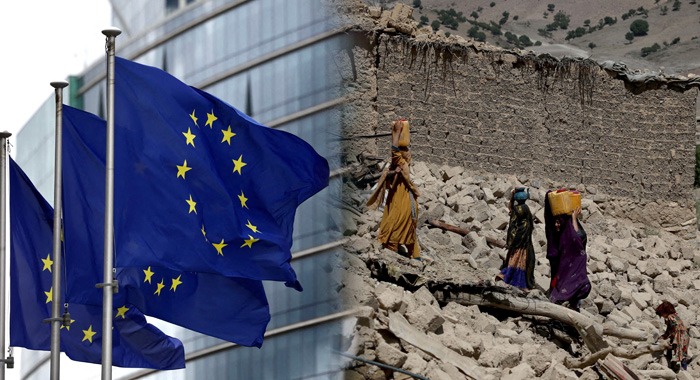The European Union’s Civil Protection and Humanitarian Aid Operations agency has raised the alarm over Afghanistan’s accelerating humanitarian collapse, warning that more than 23 million people remain in desperate need of aid amid systemic repression, widespread poverty, and the forced return of millions of Afghan refugees. The agency sharply criticised the Taliban regime for policies that have exacerbated human suffering, particularly for women and girls.
In a statement posted on social media platform X, the EU agency conveyed deep concern over the escalating hardships confronting returnees from neighbouring countries. With forced deportations from Pakistan and Iran continuing unabated, the EU estimates that as many as 4.8 million people are now at risk of being uprooted and left vulnerable under a regime that has failed to uphold even the most basic human rights.
“Every day we are witnessing hundreds of families returning from Pakistan and Iran,” said Gioia Benedetti, an EU official working in Afghanistan. “They arrive with few belongings and face dire conditions.”
According to the agency, returnees are often left without access to food, clean water, healthcare, shelter or livelihood a grim reality compounded by the Taliban’s indifference to the suffering of its population. The EU underscored that Afghanistan is facing one of the worst humanitarian crises in the world, driven not only by external factors but by the Taliban’s systematic dismantling of civil liberties and institutional frameworks that once offered a semblance of social protection.
Women and girls, the agency noted, remain the hardest hit. Since the Taliban’s return to power in 2021, sweeping edicts have banned them from education beyond the sixth grade, prohibited their employment in most sectors, and confined them to private spaces. In many cases, even humanitarian organisations have been barred from employing female staff, further restricting aid delivery to female-headed households.
“These are not just discriminatory policies,” the EU agency stated. “They are calculated acts of repression that deprive half the population of their agency, future, and voice.” The dire warning follows a joint appeal by five United Nations-affiliated agencies calling for immediate international attention to Afghanistan’s malnutrition crisis. The UN reports that four out of every ten Afghan women are undernourished, while the country ranks among the 15 worst globally for child malnutrition indicators that mirror a governance model rooted in exclusion, denial, and neglect.
While millions of Afghans teeter on the brink of starvation, the Taliban leadership remains defiant, unaccountable, and unresponsive to the growing pleas of the international community. Aid agencies continue to face operational barriers, funding shortfalls, and political restrictions that obstruct relief efforts all under the shadow of a regime that offers no vision beyond isolation and oppression.
As global fatigue over Afghanistan sets in, the EU’s statement serves as a critical reminder that the crisis is far from over and that silence, inaction, or diplomatic normalization with the Taliban will only deepen the suffering of the Afghan people.
“The people of Afghanistan don’t just need aid. They need the restoration of rights, freedoms, and international solidarity,” the EU agency said. “There can be no compromise with a system that thrives on the erasure of women and the abandonment of the vulnerable.”





